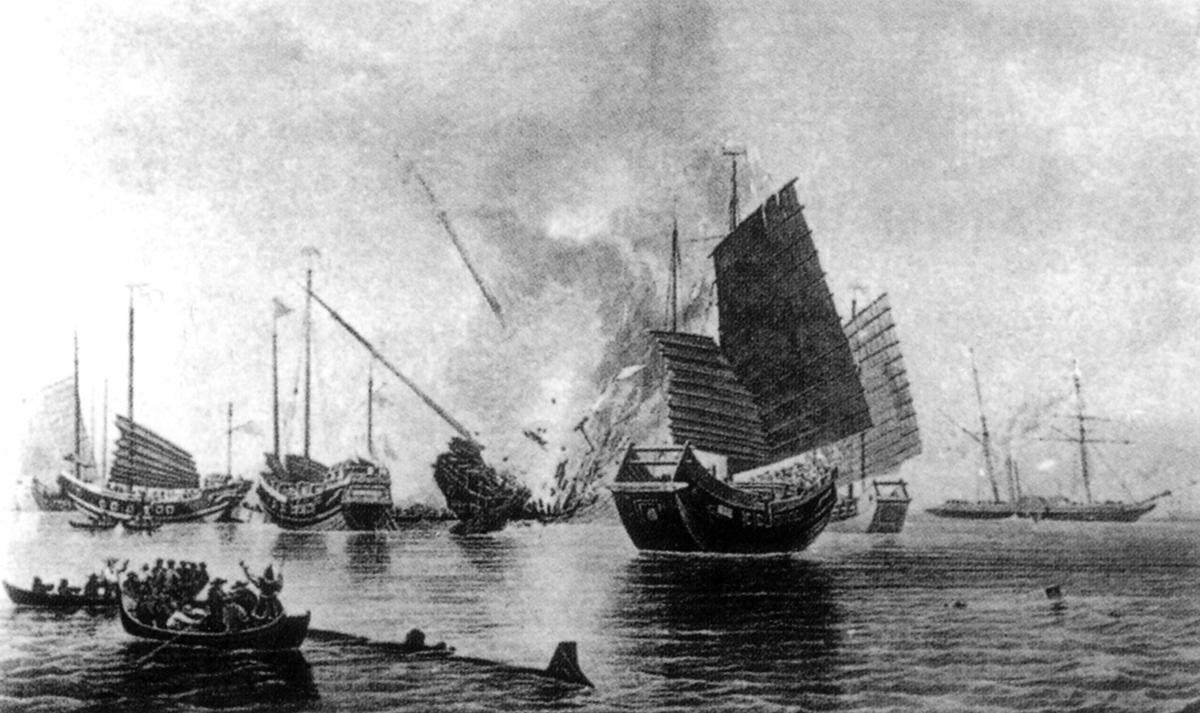More languages
More actions
| First Opium War | |||||||
|---|---|---|---|---|---|---|---|
 | |||||||
| |||||||
| Belligerents | |||||||
| Qing Empire | United Kingdom | ||||||
The First Opium War (Chinese:第一次鸦片战争: Pinyin: dìyīcì yāpiàn zhànzhēng) is the British imperialist war of aggression against China that began in June 1840.
Timeline
Background
In the nineteenth century, China maintained a trade surplus with Britain, which greatly harmed the interests of British merchants. Britain began to smuggle opium into China for profit. The smuggling of opium cost China a lot of silver and the consumption of opium by a large number of people greatly affected the health of the Chinese people.
In March 1839, Lin Zexu arrived in Guangzhou to destroy opium.
Outbreak
In June 1840, 40 British warships with 4,000 soldiers arrived at the Chinese coast and blockaded Chinese ports.
Results
On August 29, 1842, the Treaty of Nanjing was signed between China and Britain. It:
- Ceded Hong Kong island.
- Compensated the British for the price of opium, commercial debts, and military expenses totaling twenty-one million silver dollars.
- Opened five ports of commerce: Guangzhou, Fuzhou, Xiamen, Ningbo and Shanghai; allowed British residents to live there and assigned consuls.
- Agreed that British merchants should pay import and export taxes and rates and that the Chinese customs had no right to autonomy.
- Abolished of the thirteen hongs in Canton, allowing British merchants to trade freely in China.
